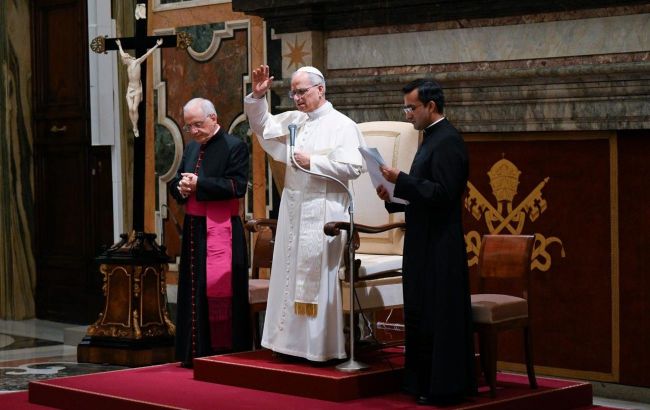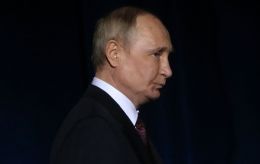Pope's Easter vision: Unity for all Christians
 Pope Leo XIV advocates for celebrating Easter on a single date for all Christians (photo: vaticannews.va)
Pope Leo XIV advocates for celebrating Easter on a single date for all Christians (photo: vaticannews.va)
Pope Leo XIV has stated that the Catholic Church is ready to seek a common solution for establishing a single date to celebrate the Resurrection of Christ, so that all Christians may celebrate Easter together, according to Vatican News.
What Pope Leo XIV said
During a symposium in Rome dedicated to the 1700th anniversary of the First Council of Nicaea and the issue of Catholic-Orthodox unity, Pope Leo XIV emphasized that "what unites Christians is far greater than what divides."
"The Council of Nicaea is not merely an event of the past but a compass that must continue to guide us towards the full visible unity of all Christians," the Pontiff noted.
He reminded that the Ecumenical Council aimed to resolve theological disputes and establish a unified Christian doctrine. Its outcomes included affirming Christ's divinity and formulating the Nicene Creed.
In Pope Leo XIV's view, the First Ecumenical Council is "foundational" for the common journey Catholics and Orthodox have undertaken together.
"The unity for which Christians long will not be primarily the fruit of our own efforts, nor will it be realized through any preconceived model or blueprint," the Pope stated.
In his opinion, Christian unity will be "a gift received as Christ wills and by the means that He wills, by the working of the Holy Spirit."
Recalling that the date of Easter is one of the symposium's three main topics, Pope Leo XIV noted that one of the goals of the Council of Nicaea in 325 was precisely to establish a common date for Easter.
"Sadly, differences in their calendars no longer allow Christians to celebrate together the most important feast of the liturgical year," the Pontiff remarked.
According to him, this situation:
- causes pastoral problems within communities;
- divides families;
- weakens the credibility of "our witness to the Gospel."
At the same time, the Pope shared that several concrete solutions have been proposed which, while respecting the principles of the Council of Nicaea, would allow Christians to celebrate the "Feast of Feasts" together.
He expressed satisfaction that this year, all Christians had the opportunity to celebrate Easter on the same day and reaffirmed "the openness of the Catholic Church to the pursuit of an ecumenical solution favoring a common celebration of the Lord's Resurrection."
In his view, a common date for this feast would give "greater missionary force to our preaching of the name of Jesus and the salvation born of faith in the saving truth of the Gospel."
On September 1, 2023, the Orthodox Church of Ukraine (OCU) adopted the Revised Julian Calendar. Because of this, fixed-date (non-movable) feasts shifted 13 days earlier.
According to His Beatitude Sviatoslav, head of the UGCC and Major Archbishop of Kyiv-Halych, the transition of the Ukrainian Greek Catholic Church (UGCC) to the new calendar also went successfully.
However, he noted that the calendar reform in Ukraine is not yet fully complete, as "the issue of reforming the Paschalion" and the joint celebration of Easter remain.
The late Pope Francis, during a homily on January 25, 2025 (on the Feast of the Conversion of Saint Paul), called on Christians worldwide to establish a single date for the celebration of Easter.
Later, Ecumenical Patriarch Bartholomew remarked that the modern world is becoming increasingly divided and commented on his readiness for dialogue with the Vatican.

